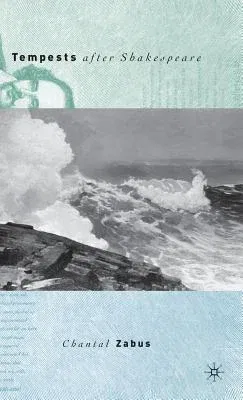C Zabus
(Author)Tempests After Shakespeare (2002)Hardcover - 2002, 3 September 2002

Qty
1
Turbo
Ships in 2 - 3 days
In Stock
Free Delivery
Cash on Delivery
15 Days
Free Returns
Secure Checkout

Print Length
332 pages
Language
English
Publisher
Palgrave MacMillan
Date Published
3 Sep 2002
ISBN-10
0312293429
ISBN-13
9780312293420
Description
Product Details
Author:
Book Edition:
2002
Book Format:
Hardcover
Country of Origin:
US
Date Published:
3 September 2002
Dimensions:
18.64 x
11.84 x
2.39 cm
ISBN-10:
0312293429
ISBN-13:
9780312293420
Language:
English
Location:
New York
Pages:
332
Publisher:
Weight:
485.34 gm